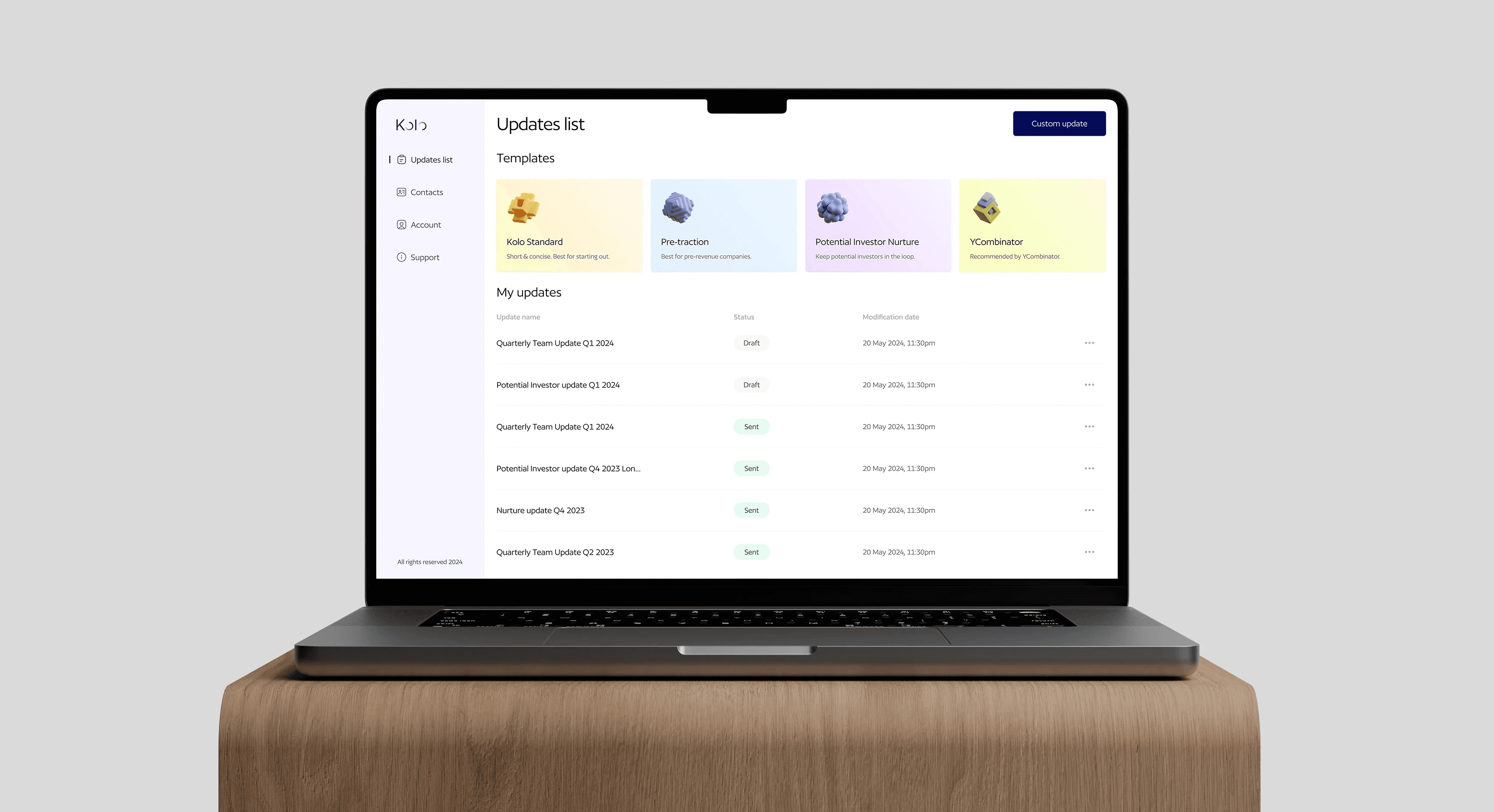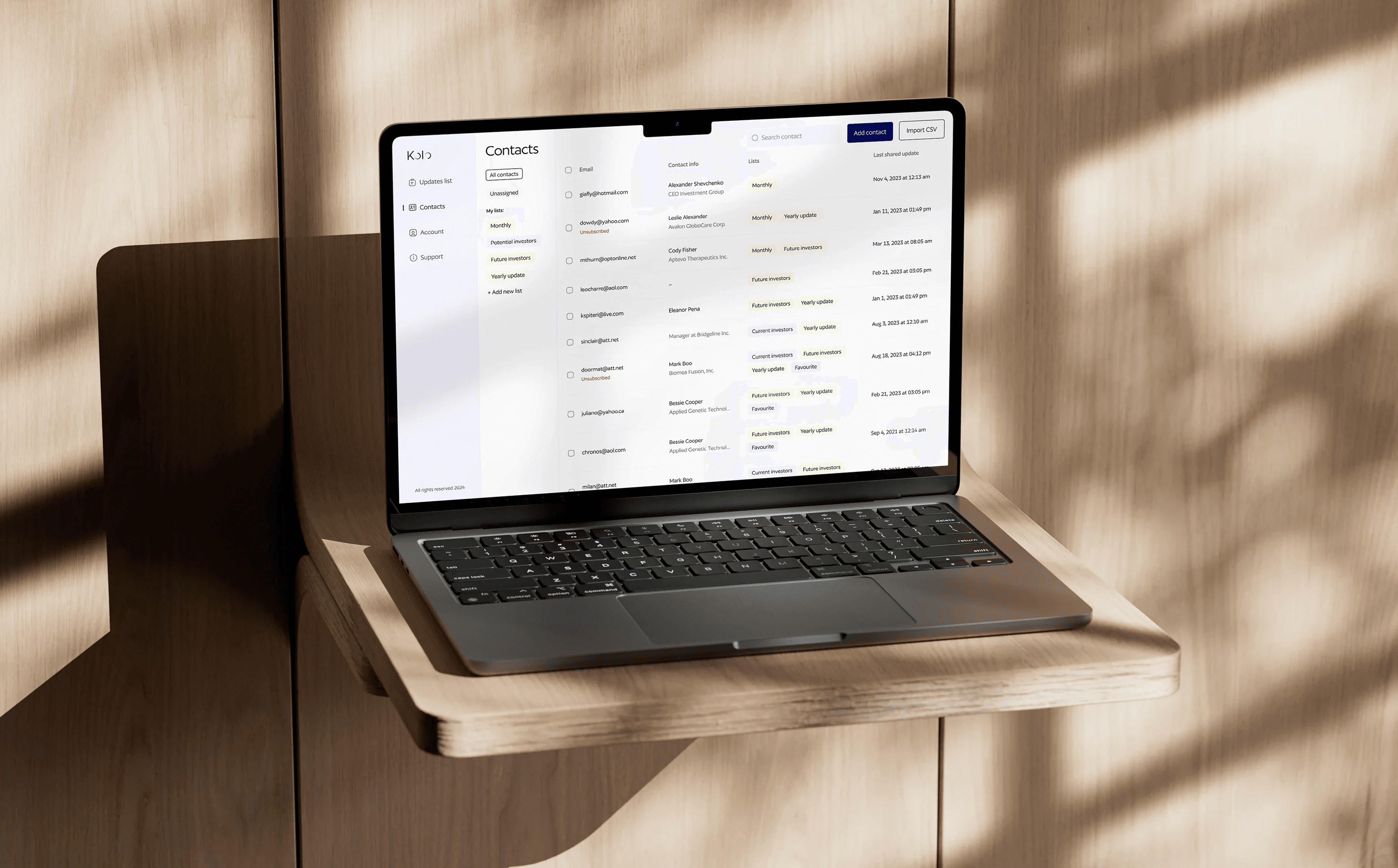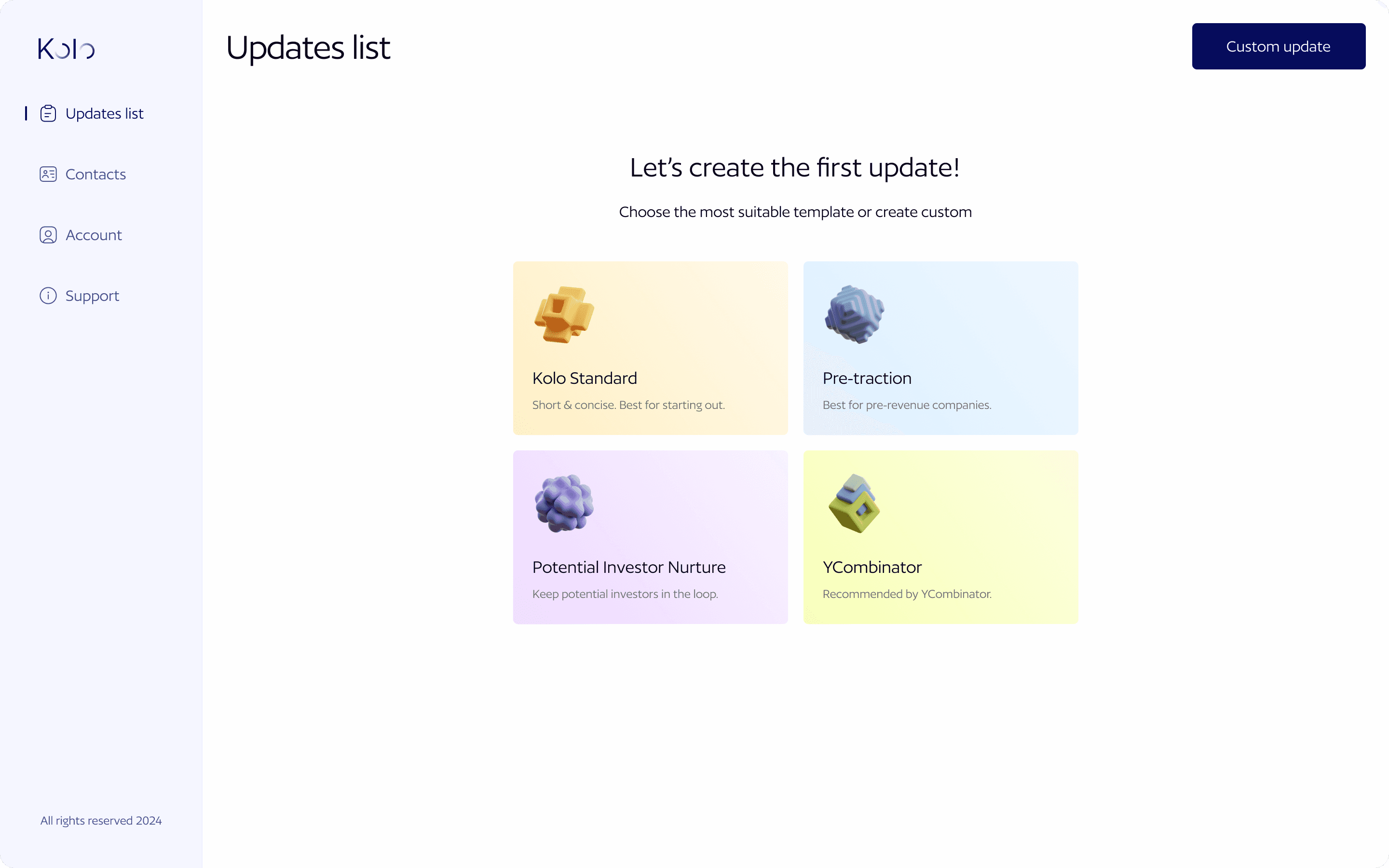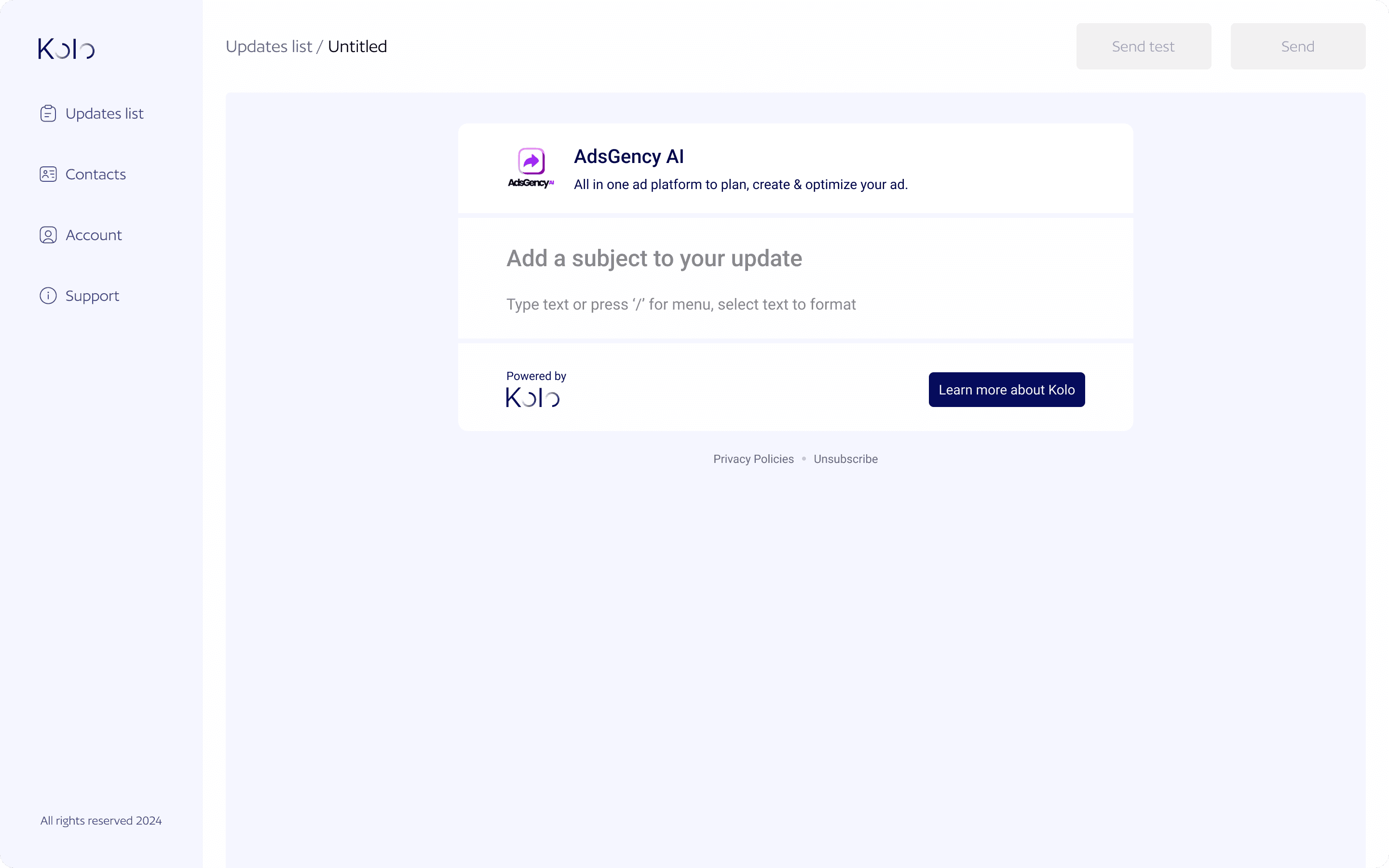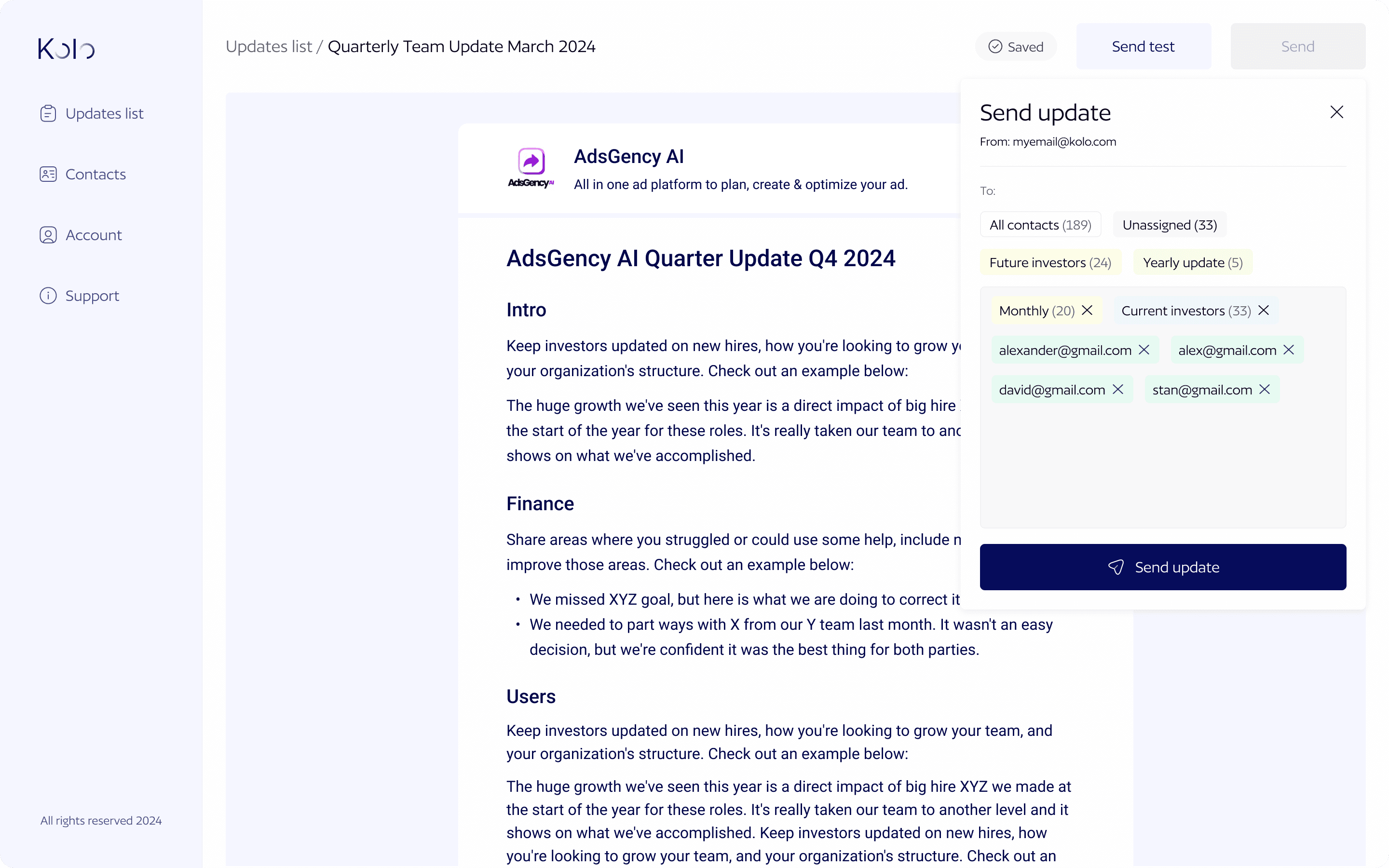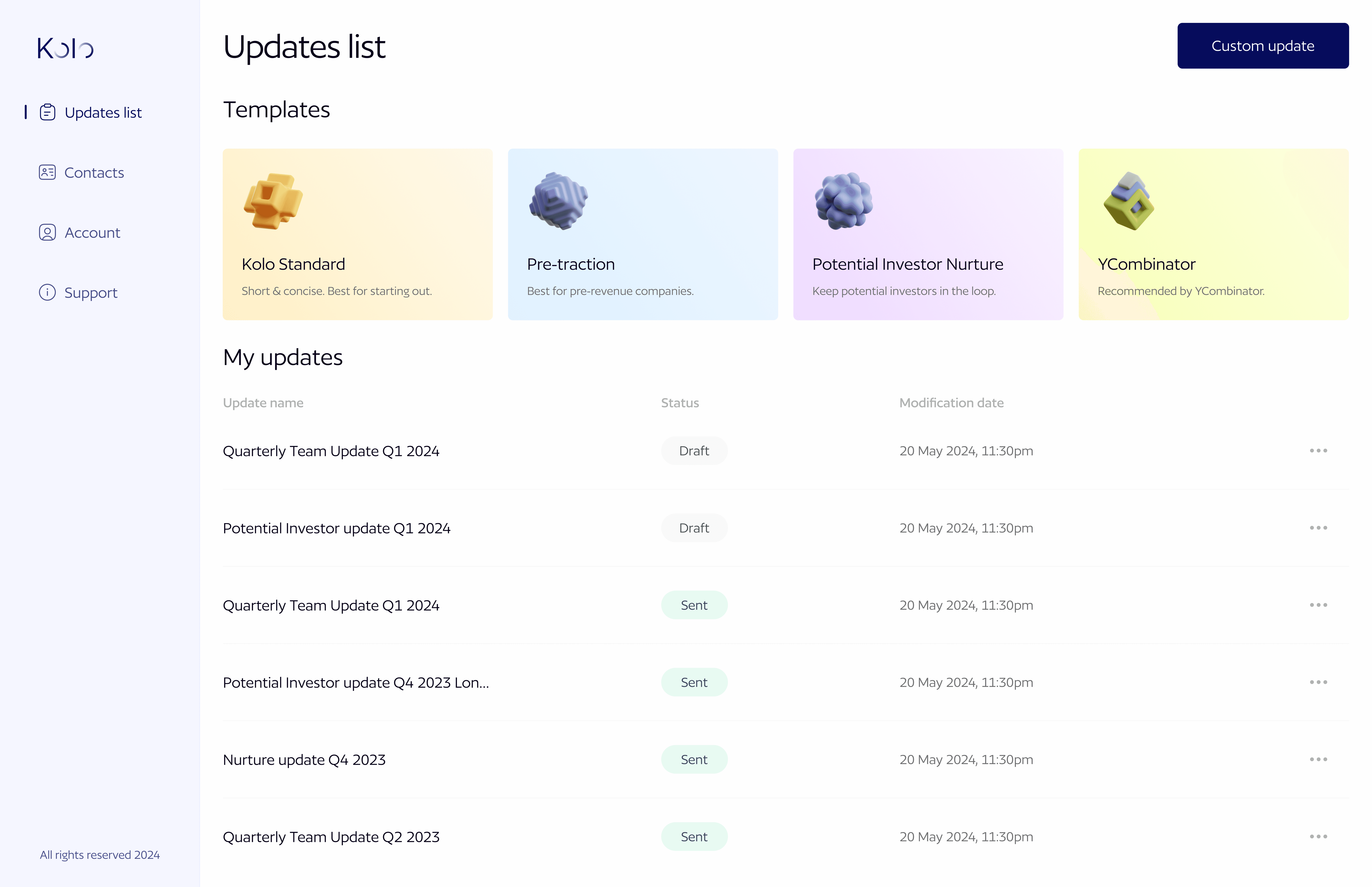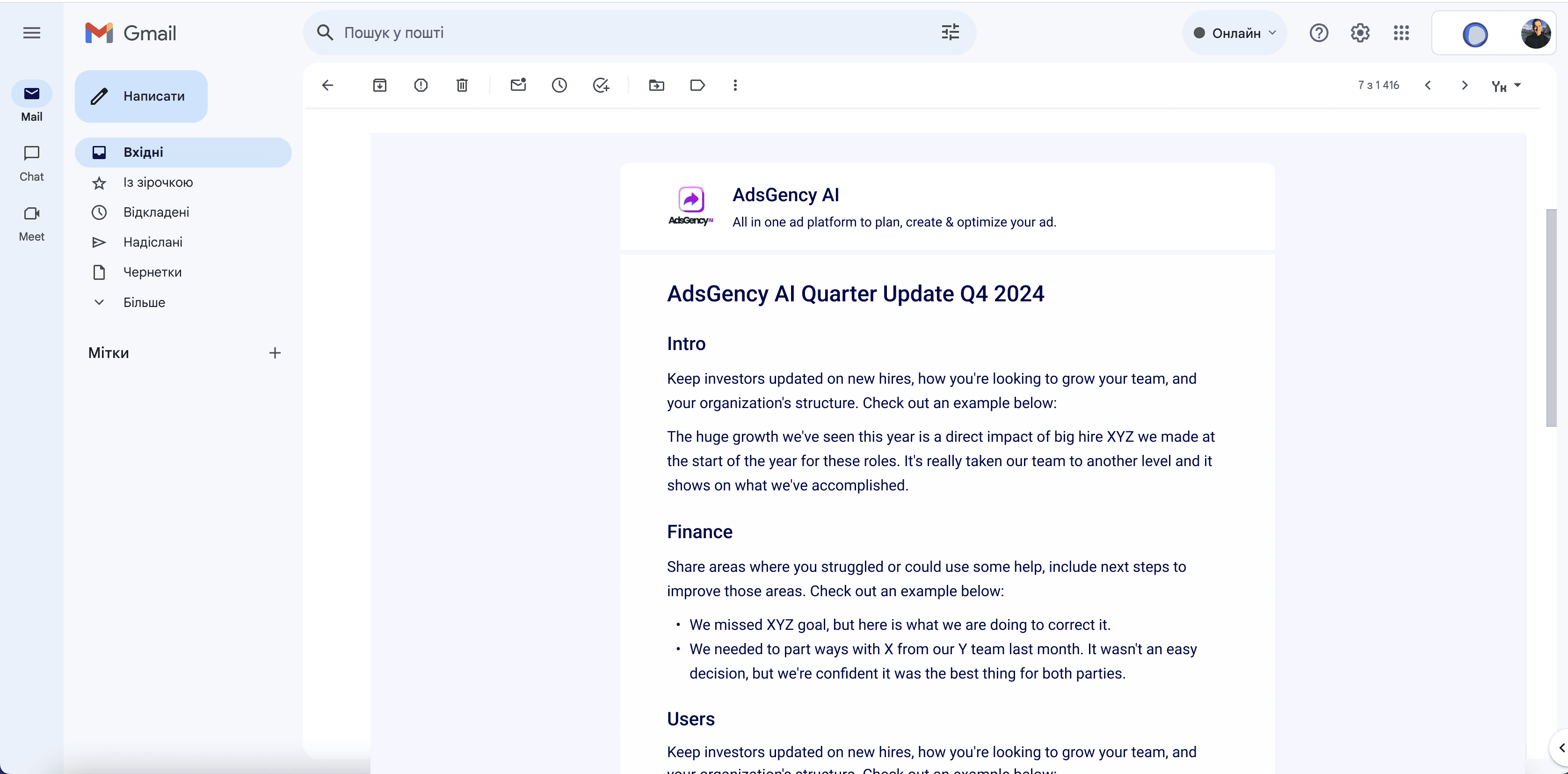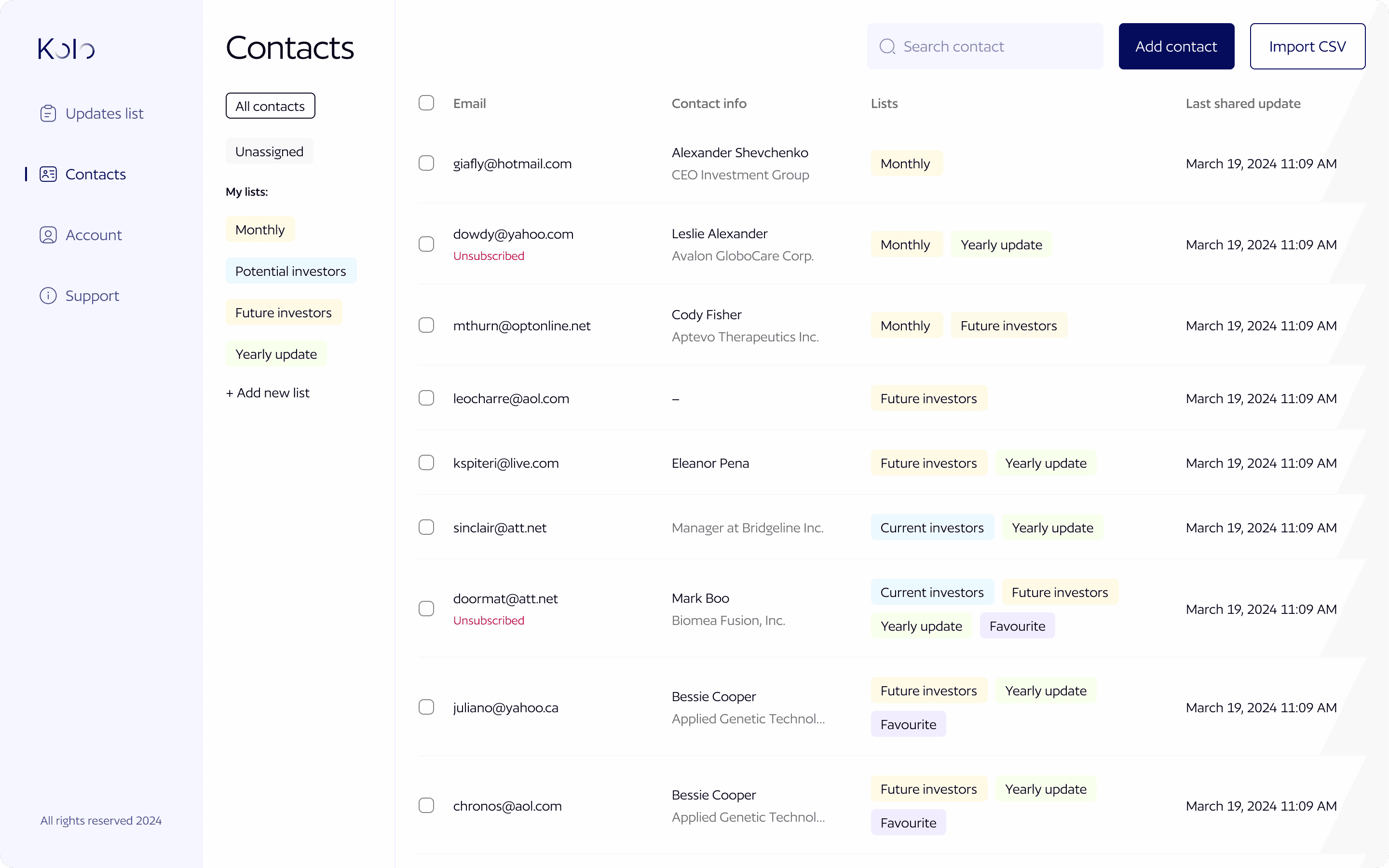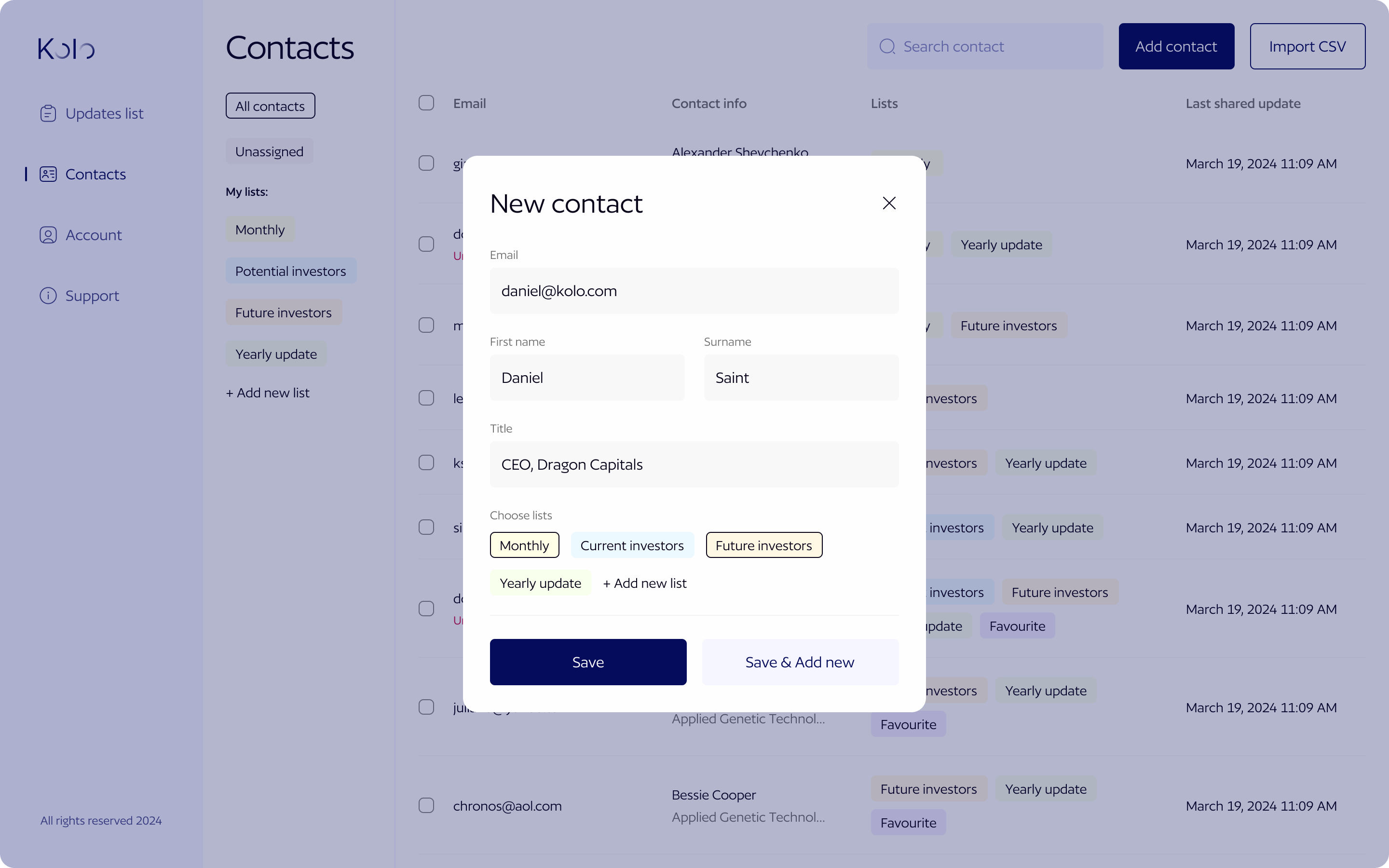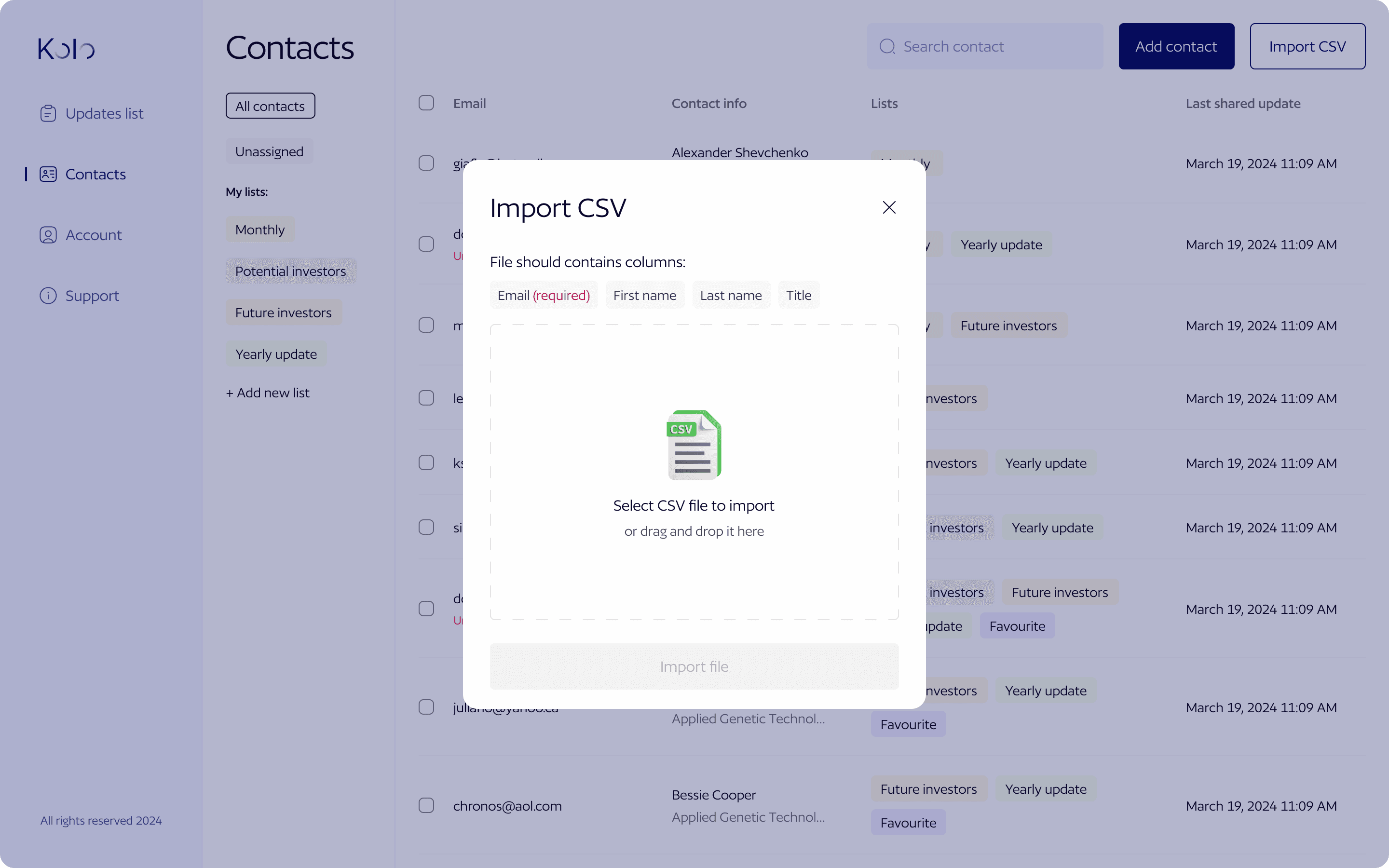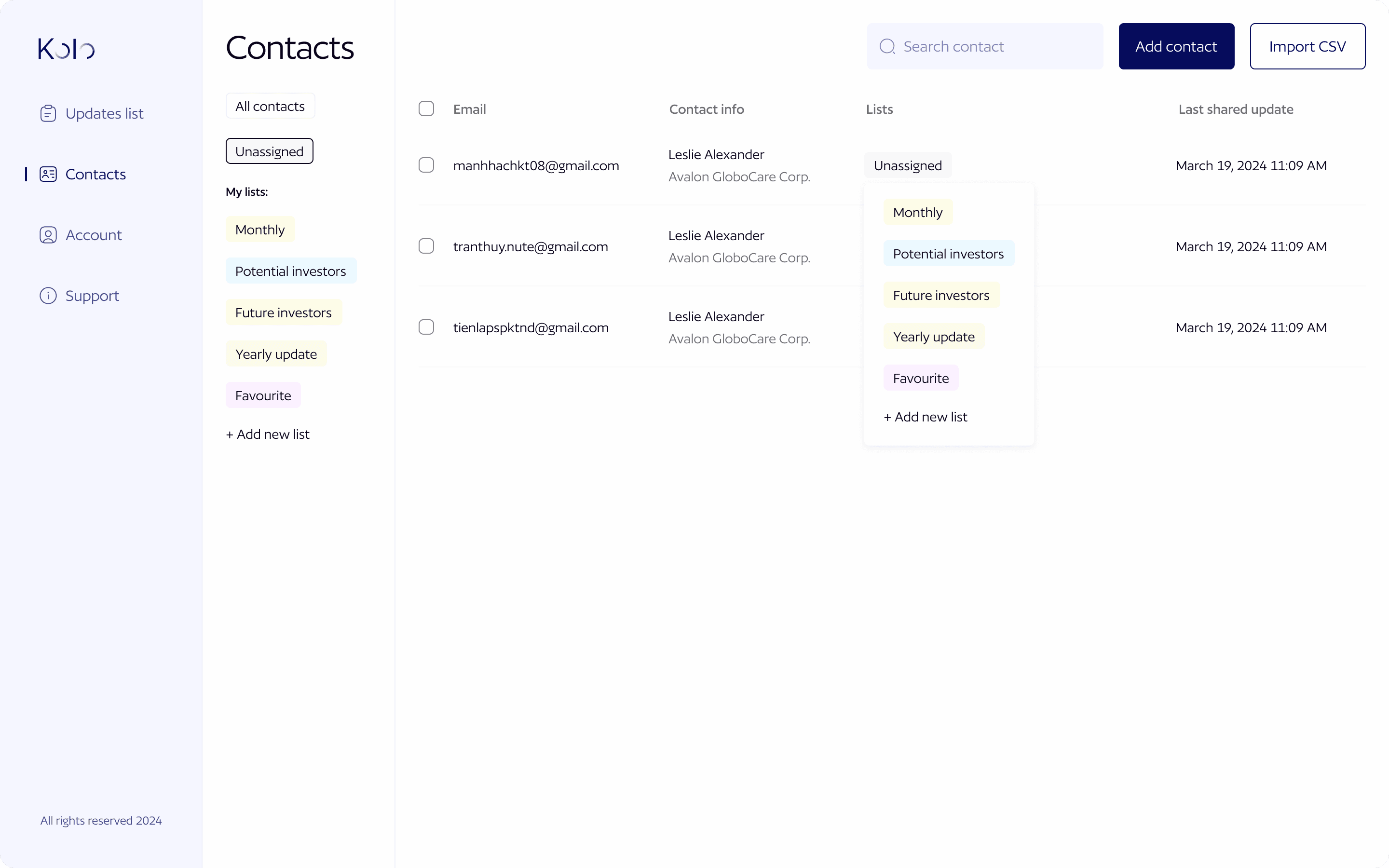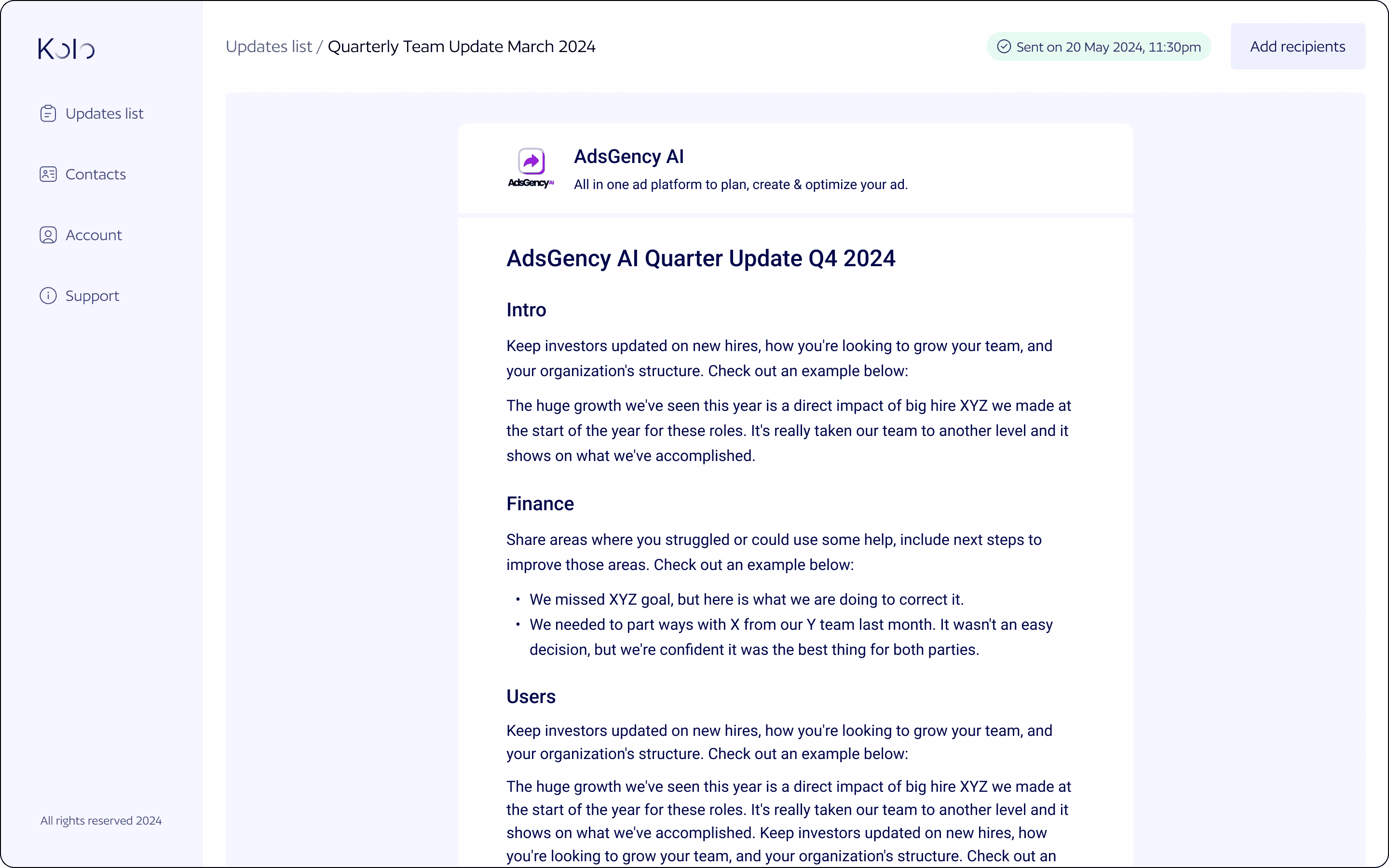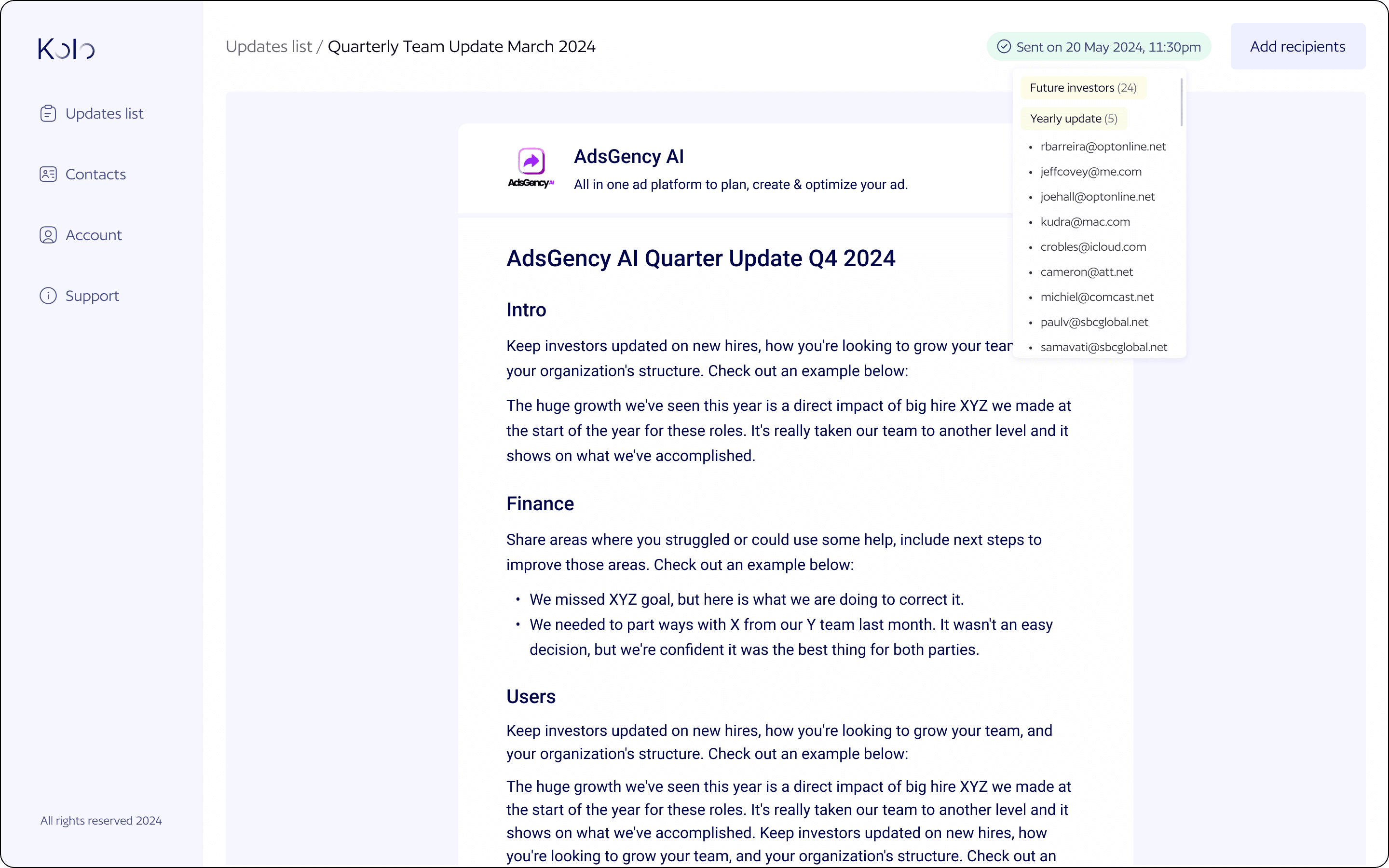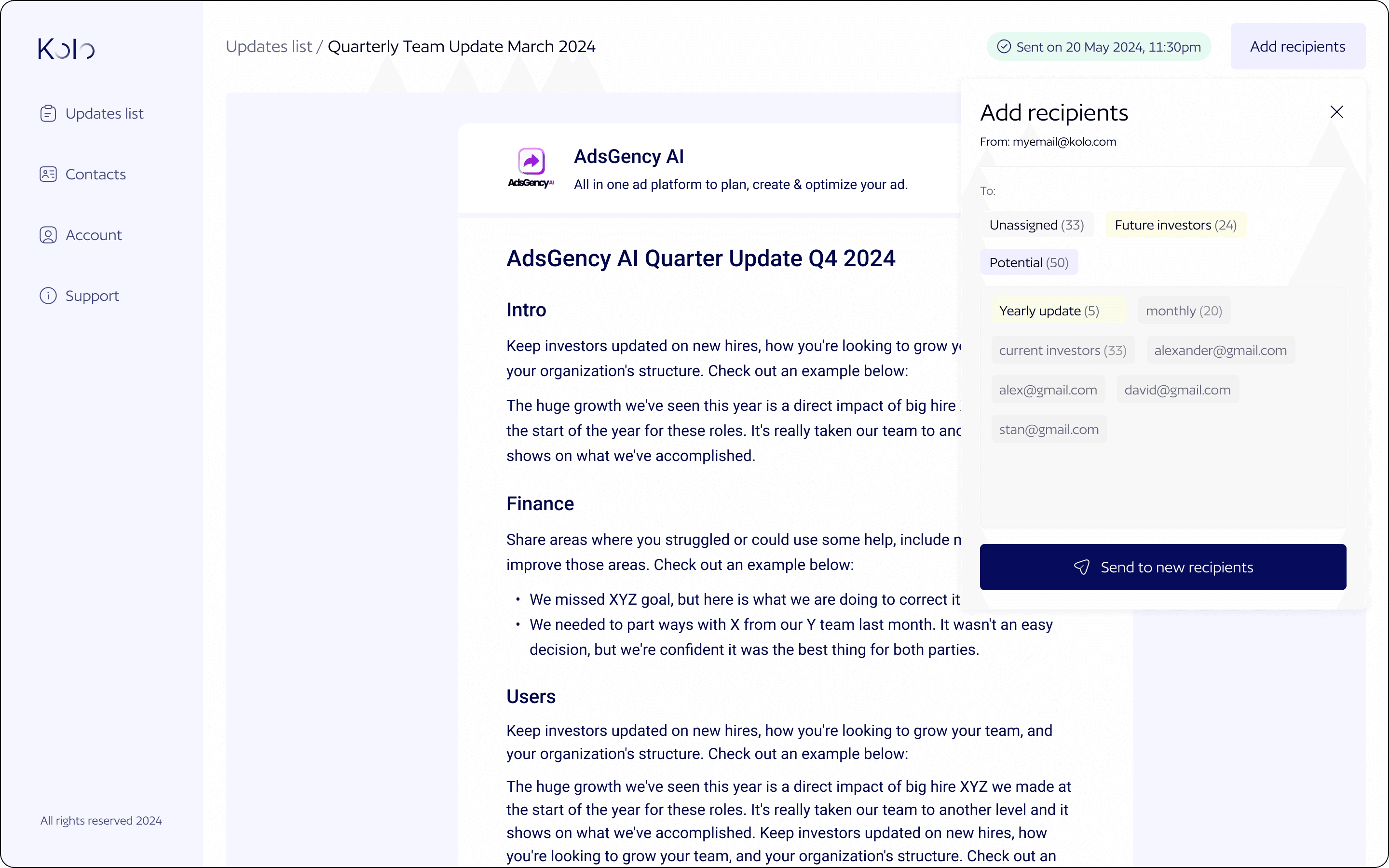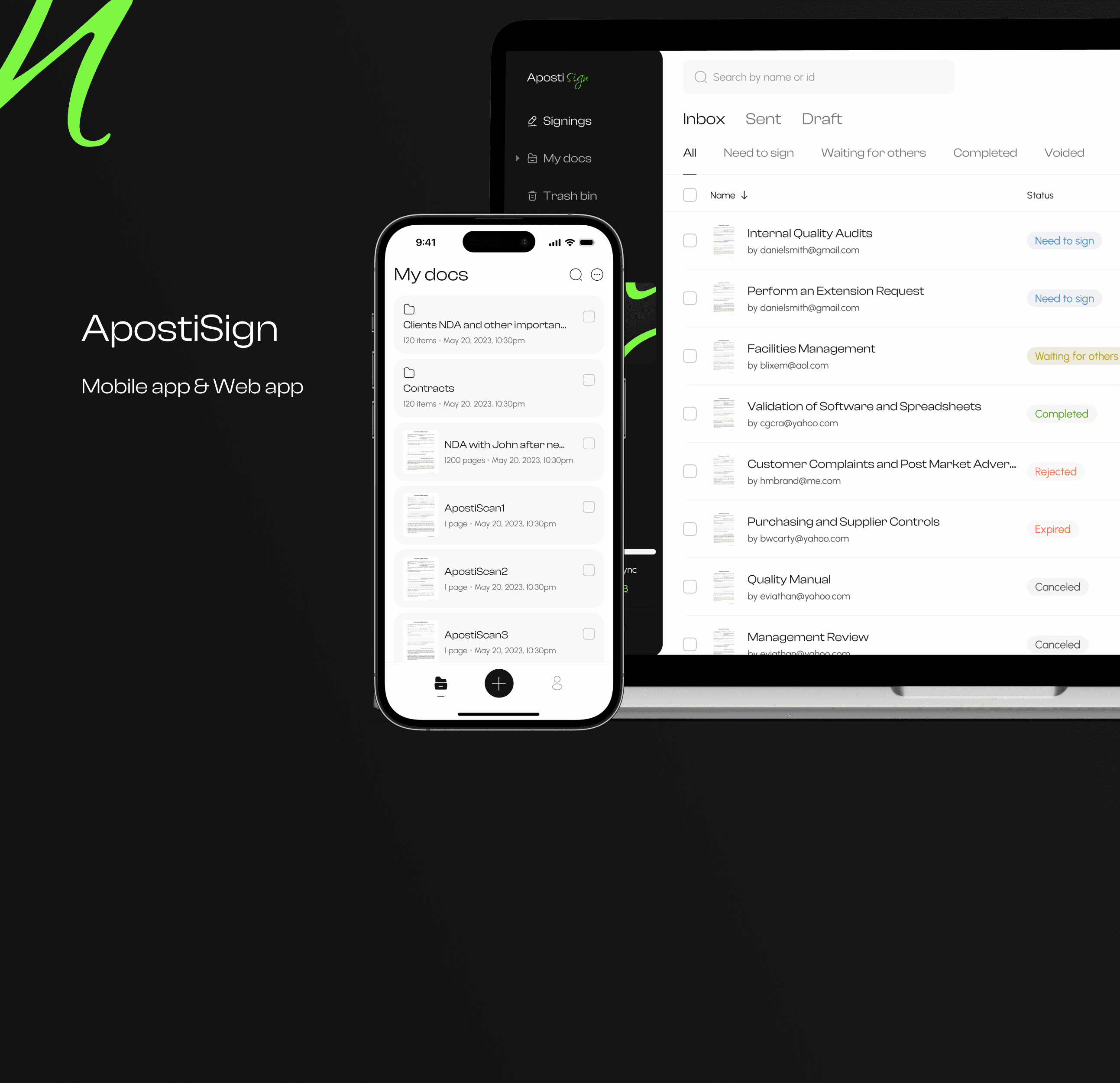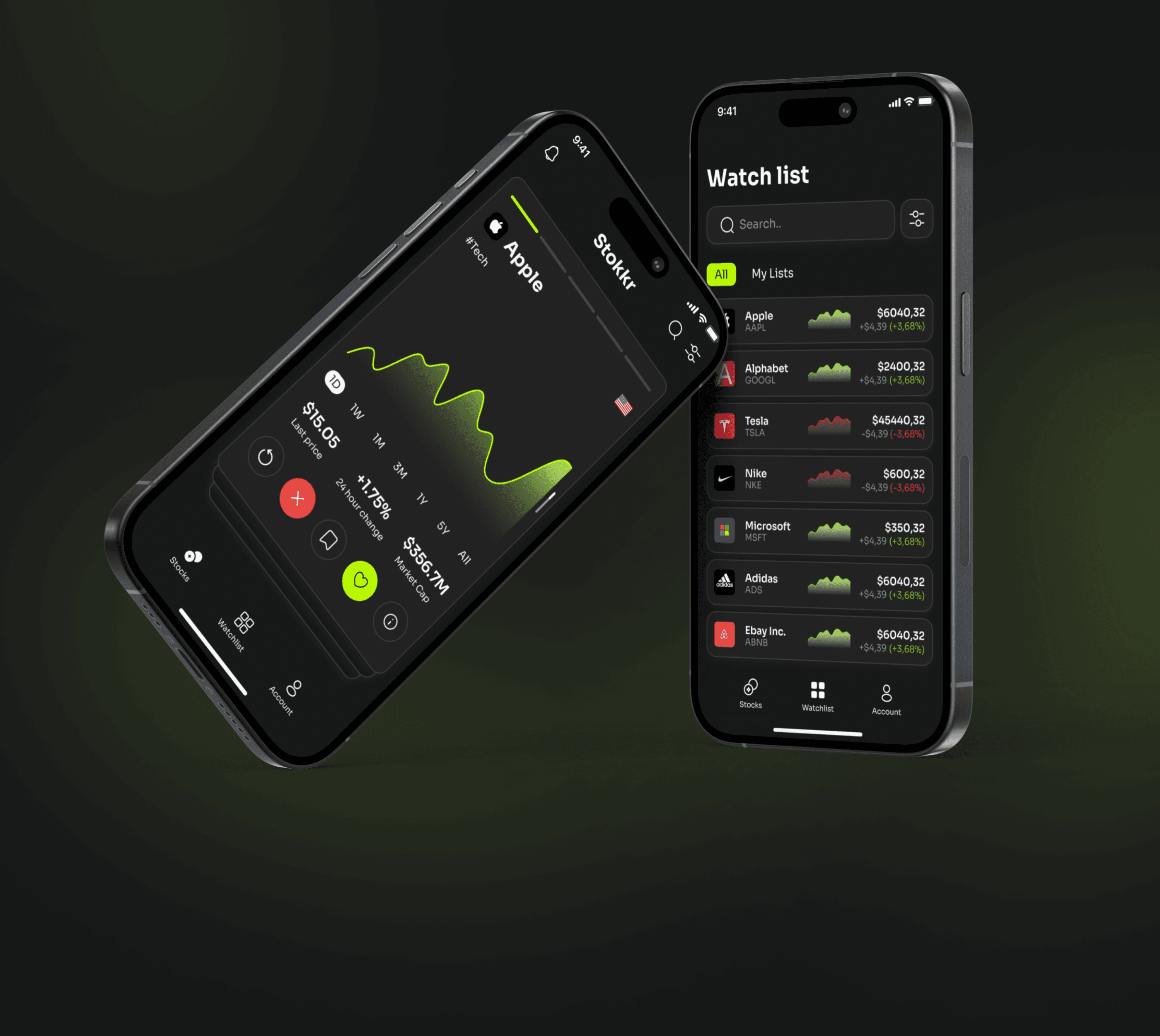Kolo
Kolo is a web app that allows effortlessly create and share your startup's progress with investors.
Background
While working in the IT industry, the founder of Kolo noticed that creating and managing updates for investors was usually quite complex and time-consuming. He decided to assemble a team, which I joined, to tackle this problem.
Team
Product manager
Business analyst
Product designer
Back-end dev
Front-end dev
My role
UX research (In-depth interviews)
Prototyping & usability testing
UI design
Branding and visual identity.
Key results
50+ startups owners sign ups in first month
8.7/10 users feedback
Kolo was bought by big investment fond for their internal usage.
In-depth interviews
Objective
I conducted in-depth interviews with 8 start-up founders to understand their pain points during investor update creation and sharing.
Key pains
Startup founders, especially newcomers, do not know how to write and format these reports correctly, they look for examples on the Internet and then format them according to the example.
Startups have many different categories of investors (current, interested, those who need weekly reports, or months, etc.) and it is difficult to manage them.
The founders are worried about how the final update will look like, whether everything will be readable enough, whether the columns of the tables will move, etc.
Key needs
Easy way to create quality updates
Easily manage investors emails, categorise them
Understand visual presentation of update sent
Create update with different content (text, images, tables, charts, etc.)
Update creation
It was crucial for us to simplify and ease the process of creating updates. Therefore, we identified the four most popular types of updates and created templates that make the initial step much easier and also serve as examples for creating custom updates.
Another goal was to standardize the appearance of updates on the platform to match what investors receive. To achieve this, we closely simulated the look of the email during the update creation process, giving users control and a clear understanding of what they are sending.
However, we found that users often wanted to preview how the update would look before sending it. Therefore, we added a feature that allows users to send a test update to their email, providing them with complete assurance.
Below, you can see the appearance of the email that investors receive and assess how well our update creation layout has been designed.
Contacts management
To address the issue of managing the various categories of investors (current, interested, those needing weekly or monthly reports, etc.), we added a Contacts section. This feature allows users to easily and conveniently add, categorize, and select contact groups directly when sending updates.
Contacts can be added manually or imported via a CSV file. Also, contacts entered manually during an email send are automatically added to this section, so users don't need to input the data again.
Add recipients after update was sent
During in-depth interviews, we discovered that users often need to resend a previously sent update or may forget to include someone. To address this, we added a feature for adding recipients to an update. Users can review when and to whom the update was sent and easily add additional recipients.
Main lesson learned
Direct communication with users, focusing on the right priorities, and using an iterative approach have a big impact on the outcome. I believe it was this approach that made Kolo successful and valuable in the market. The fact that the product was immediately acquired for internal use by a major investment fund highlights its significant value.

